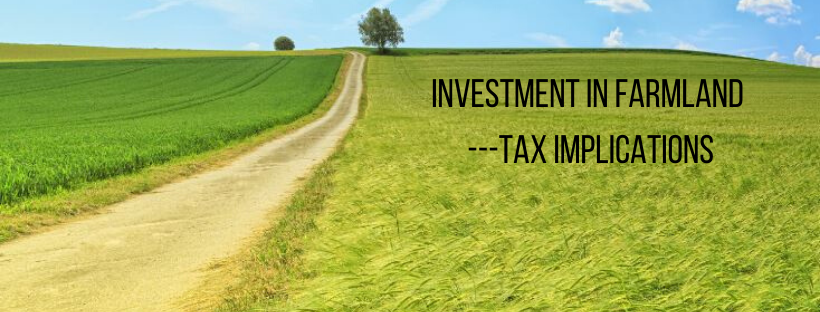Many financial advisors have said that investment in farmland may not be comparable to other real estate opportunities as the return is not as attractive as they are published. However, if you consider investment in farmland as an alternative in your investment portfolio, farmland may be a good option as the value of farmland remains when demand is growing for farmland as the world’s population and global needs for food are rising, particularly the trend for local sources is rising. But today we are going to talk about a couple tax matters related to a reader’s email.
A reader recently asked, ” I have a property that is a farm in Ontario. It is owned by a my Incorporated company. It is 10 acres. Farm land is 7 acres. House is on one acre. Farm is rented on $2,500.00 per year. House on $2,850.00 per month. How do I divide the land and house for depreciation purposes and do I charge HST or not?. Since My incorporation is a HST registrant.”
The questions have many folds but let’s tackle them one by one: value of land and building and whether HST should be charged on the rent collected.
Value of Land and building
The reason why we are interested to determine the value of land and building is because the allocation will affect the tax depreciation(CCA), which ultimately affect tax position.For tax purposes, land is not depreciable property. Therefore, the portion of the purchase price allocated to the house will be critical as the tax depreciation can be used to reduce taxable income over its useful life. Generally, the fair value of land and building is based on professional appraisal, which can stand up to challenges from the CRA.
Alternatively, depending on your comfort level on your own valuation, you can also use 75/25 rule, which means 75% of the purchase price is allocated to the building and 25% to the land. This may make sense for a property in a busy street in Toronto. However, for the situation above, 75/25 rule may not work as the land is rented out and also generates decent rental income so that 50/50 ratio may be more reasonable. That’s why sometimes it is recommended hiring a professional appraiser to ascertain the value of the land and building. Another way to determine the split is to look at the property assessment. It does not matter which approach to choose but always remember making sure the split is reasonable before the CRA gets interested.
Whether HST should be charged
HST is always a challenging tax compliance for many farmers and other investors.
There are two categories of supplies from HST perspective. One is the supplies of rental residential property and the other is the supplies of farmland. From HST perspective, if the supplies are taxable, then you need to collect HST. However, some supplies are exempt from the HST – that is, no HST applies to them. This means that you do not charge the HST on these supplies of property and services, and you are generally not entitled to claim ITC on property and services acquired to provide these supplies.
Back to the transaction, rentals of residential properties that are currently exempt under the HST. So, landlords are not required to collect the HST on long-term residential rents. Meanwhile, landlords are not entitled to claim input tax credits (ITCs) for any HST paid or payable on taxable goods and services acquired to provide exempt long-term residential rentals.
What about the farmland? It is required to charge HST on farmland rentals. According to the CRA, all supplies of land by way of lease, licence or similar arrangement are taxable unless specifically exempted. In some situations, farmland rental may be exempt from HST when there is an arrangement with sharecropping. Aside from sharecropping arrangements HST must be charged.
If you have challenges in HST on your business, give us a call @647-872-6656. We surely can help!

Recent Comments